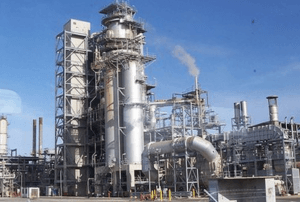Government proposes increase in petroleum levies to pay TOR debt
 The government has proposed an increase in existing levies on petroleum products to raise additional money for the payment of the Tema Oil Refinery (TOR) debt.
The government has proposed an increase in existing levies on petroleum products to raise additional money for the payment of the Tema Oil Refinery (TOR) debt.
The Tema Oil Refinery Company Fund Amendment Bill, which was submitted to parliament, was referred to the Parliamentary Committee on Finance for consideration and report.
Under the amendment, the government has proposed that the current levy of two pesewas on every litre of premium petroleum and gas oil should be increased to eight pesewas.
The 2.5 pesewas levy on a litre of marine gas oil is also to be increased to three pesewas, while the current 3.5 pesewas on each litre of Residuel Fuel Oil is to be increased to four pesewas.
According to a report of the Finance Committee on the amendment, a Deputy Minister of Finance and Economic Planning, Mr Seth Tekper, informed the committee that the aim of the bill was to relieve TOR of its debt overhang to firmly position the company to play a significant role in the emerging petroleum industry, especially in the downstream sector.
According to the report, the government refinanced about GH¢445 million of the TOR debt as part of measures to stabilise the company.
The committee advised the government, to come out clearly on exactly how much the TOR debt was at the end of 2008 and how much it is currently.
According to the report, members of the committee encouraged the government and the security agencies to do everything possible to curb the smuggling of petroleum products from Ghana to neighbouring countries.
It is estimated that revenue from the debt recovery levy for 2011 was GH¢330 million, as indicated in the budget statement.
The Debt Recovery (Tema Oil Refinery) Fund Act was passed to establish a Debt Recovery Fund to finance TOR’s accumulated debt and cater for the company’s under recovery. A debt recovery levy was imposed on specified petroleum products.
Parliament is expected to deliberate on the report of the Finance Committee to either accept or reject the proposed increments.
Source: Daily Graphic
Government proposes increase in petroleum levies to pay TOR debt
The government has proposed an increase in existing levies on petroleum products to raise additional money for the payment of the Tema Oil Refinery (TOR) debt.
The Tema Oil Refinery Company Fund Amendment Bill, which was submitted to parliament, was referred to the Parliamentary Committee on Finance for consideration and report.
Under the amendment, the government has proposed that the current levy of two pesewas on every litre of premium petroleum and gas oil should be increased to eight pesewas.
The 2.5 pesewas levy on a litre of marine gas oil is also to be increased to three pesewas, while the current 3.5 pesewas on each litre of Residuel Fuel Oil is to be increased to four pesewas.
According to a report of the Finance Committee on the amendment, a Deputy Minister of Finance and Economic Planning, Mr Seth Tekper, informed the committee that the aim of the bill was to relieve TOR of its debt overhang to firmly position the company to play a significant role in the emerging petroleum industry, especially in the downstream sector.
According to the report, the government refinanced about GH¢445 million of the TOR debt as part of measures to stabilise the company.
The committee advised the government, to come out clearly on exactly how much the TOR debt was at the end of 2008 and how much it is currently.
According to the report, members of the committee encouraged the government and the security agencies to do everything possible to curb the smuggling of petroleum products from Ghana to neighbouring countries.
It is estimated that revenue from the debt recovery levy for 2011 was GH¢330 million, as indicated in the budget statement.
The Debt Recovery (Tema Oil Refinery) Fund Act was passed to establish a Debt Recovery Fund to finance TOR’s accumulated debt and cater for the company’s under recovery. A debt recovery levy was imposed on specified petroleum products.
Parliament is expected to deliberate on the report of the Finance Committee to either accept or reject the proposed increments.
Source: Daily Graphic
